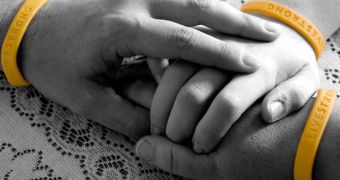Self-help programs are training courses in which participants are taught how to impose it upon themselves that they are able to overcome a certain problem. The issue with these groups is that most of them are addressed to people who already have a low level of self-esteem. A new study demonstrates that individuals who know their worth and are confident in themselves to a certain extent seldom participate in self-help classes, because they do not teach them anything new. The study also reveals the fact that, if you try to make yourself cheerful by saying phrases like “I am a lovable person” while having a low self-esteem, you may actually end up making yourself feel worse.
In a newly publish article, researchers demonstrate the fact that self-confidence may actually be derived from genetic roots, in very much the same way the IQ is. Until now, the prevailing view has been that the environment and other socio-economic factors were largely responsible for a person's degree of self-confidence. But experiments carried out on twins proved that their levels of self-esteem were roughly similar, suggesting another influence. The research does not dismiss the role that a person's surroundings play in their life, but says that the causes are, first and foremost, genetic.
Another research, published in 2008, also revealed that group pride, such as that in frat houses, or in intimate communities, might actually be an attempt by the members of the group to mask various personal or group issues they might have, such as a low social status, poverty, or insecurity. Coming together with a large number of other individuals who have the same problems to some extent boosts the members' self-confidence and self-esteem, but only up to a certain point, LiveScience informs.
“People with fragile high self-esteem compensate for their self-doubts by engaging in exaggerated tendencies to defend, protect and enhance their feelings of self-worth,” Psychology Professor Michael Kernis, from the University of Georgia, explained. In 2008, he conducted a study that concluded that people with high self-esteem tended to be less defensive, precisely because they accurately knew their worth. Conversely, persons with low self-esteem were more likely to engage in endless rantings, trying to prove themselves. The research was published in the Journal of Personality.

 14 DAY TRIAL //
14 DAY TRIAL //